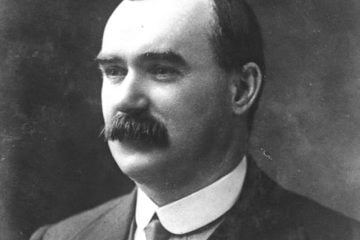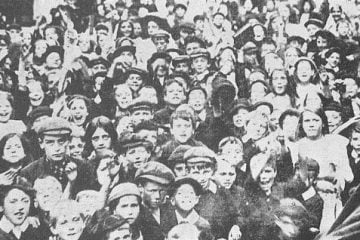Should history be objective? The answer seems self-evident – of course, it should. However, as Trotsky pointed out, “under the influence of the market and of the historic process in general…” no historian is ever truly free of subjectivity.
Indeed, this is most proven by the many distorted histories of the Russian Revolution. For an event as momentous for the world working class as this, “objectivity” in any account of the Russian Revolution becomes “a blunting of sharp edges… with a thorough disguising of the author’s political sympathies”.
Alan Woods’s Bolshevism: The Road to Revolution is a comprehensive history of the Bolshevik party which does not shy away from subjectivity. Woods presents the astounding history of the Party that led the Russian working class to victory. Throughout the text, he weaves polemics against both bourgeois and Stalinist historians who have misrepresented the history of the Bolsheviks to their own ends.
What results is a sharp tool for any revolutionary’s arsenal equipped with lessons that are applicable even 105 years after the October Revolution. Bolshevism is both a handbook for building a revolutionary party and a masterful application of the Marxist method.
Long road to revolution
Using a range of primary sources, some translated into English for the first time, new life is breathed into the history of Russian Marxism. Unlike the sanitised accounts of the Stalinist historians, where the story of the Bolshevik party is presented as one long march to inevitable victory, Woods charts the ebbs and flows of the party against the political and economic conditions of Russia at the time.
Woods also demonstrates how the development of a revolutionary party in Russia was innately tied to the development of Marxist ideas. He devotes much of the text to the many battles that took place in the socialist movement: those of genuine Marxist ideas against the trends of Narodism, anarchism, reformism, and Menshevism.
Through this, Woods also counters the popular bourgeois narrative that the Bolsheviks were a small minority who seized power in a coup. He reveals how a group of revolutionaries, educated and organised around the methods and ideas of Marxism, connected their program with the masses. This was achieved through study circles, agitation, and intervention in events such as demonstrations and strikes. Combined with Lenin’s faith in the masses of Russia to take power for themselves, it was this patient approach that allowed the Bolsheviks to win the masses to their banner – the banner of socialist revolution.
Bolshevism is also not a hagiography of Lenin. Instead, a picture is painted of a man whose ideas were adapted and informed by the currents of events like the revolution of 1905 and the First World War. A man who even made mistakes. For example, Woods demonstrates how Lenin’s understanding of how consciousness develops, initially believing that the working class cannot develop a socialist consciousness without outside intervention, was reversed by his experience of events in Russia. This evolution of Lenin’s ideas through time is a how-to in the Marxist method.
Furthermore, we see how Lenin’s thinking developed almost in parallel to the concept that Trotsky coined of permanent revolution. Through his experience, he saw that a country with a weak bourgeoisie like Russia would have to rely on the proletariat to carry out the tasks of the bourgeois revolution and that the demands from the masses would eventually move beyond bourgeois tasks. This demonstrates why Lenin insisted on building a party with complete independence from the bourgeoisie.
Related to this, we see through the Russian revolution the unending need for internationalism. Lenin recognised that the success and consolidation of the revolution in Russia was contingent on revolutions throughout Europe. This was contrary to the national chauvinistic attitudes of many leaders of the Second International at the time. The majority fell in line behind their own national ruling class against the needs of the international proletariat with fatal consequences.
Lessons for today
What was the task of the Bolsheviks in the early 20th century remains our task. In the face of the present crisis of capitalism, it is only a highly organised and educated party, revolutionary to its very core, that can secure humanity’s future.
While Alan Woods shows a clear command of a range of archival and secondary evidence, this is not merely an academic text. It is a handbook. By charting the highs and the lows of the party, we can learn a lot of lessons applicable to our own turbulent times.
Ultimately, what this text shows is that the success of every revolution comes down to its leadership. This is demonstrated in this text not only through the actions of the Bolsheviks in Russia but contrasted with the cowardice and ineptitude of the other reformist leaders of the Second International.
In the face of immense challenges, the Bolsheviks, armed with the right ideas, were able to lead the Russian working class in one of the most undeveloped countries in Europe and against the most brutal state repression, to be the first working class to decisively seize power for itself.
This should serve as our inspiration today. This is what makes Bolshevism with its wealth of insights, stories, and lessons essential reading for all revolutionaries today.
Eve Rickson





0 Comments